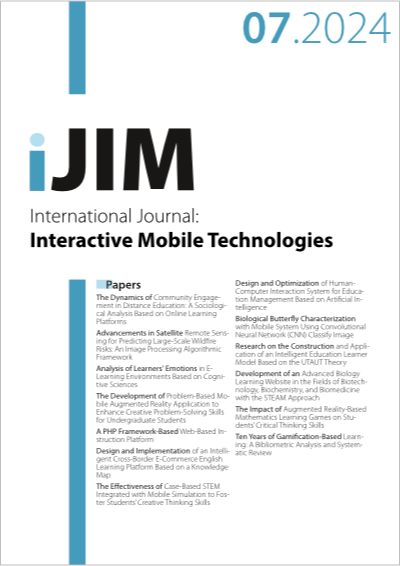The Impact of Augmented Reality-Based Mathematics Learning Games on Students’ Critical Thinking Skills
DOI:
https://doi.org/10.3991/ijim.v18i07.48067Keywords:
Critical thingking, game-based leaning, polyhedrons, mathematicsAbstract
The significance of critical thinking skills among students lies in their ability to actively assess, evaluate, and respond thoughtfully to information. This study investigates the impact of a game-based learning (GBL) model that utilizes augmented reality (AR) in mathematics learning games on the CT skills of eighth-grade junior high school students. The study specifically focuses on polyhedrons in mathematics. A quasi-experimental design was utilized to accomplish the study objectives. This study involved 77 students, divided into an experimental group of 40 students and a control group of 37 students. The research instrument used was a valid and reliable test of the students’ CT skills. The results showed that the GBL model with AR-based games significantly improved students’ CT skills. The students who received this approach showed more significant improvements in CT compared to traditional teaching methods. These results highlight the potential benefits of integrating AR technology into education to enhance students’ CT skills. This encourages educators and curriculum developers to view AR as an effective alternative for supporting students’ CT. The outcomes of this research indicate a significant advantage in using AR as a tool to promote CT among students. It could create more engaging and interactive learning environments.
Downloads
Published
How to Cite
Issue
Section
License
Copyright (c) 2024 Yudhi Hanggara, Abd. Qohar, Sukoriyanto

This work is licensed under a Creative Commons Attribution 4.0 International License.



